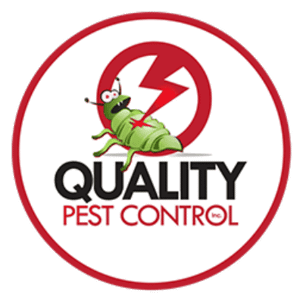When you see a spider zip across your wall, it is alarming. First, it has eight legs. That's just too many. Second, you know that spiders are predators. They have fangs and venom. If you have a fear of spiders, we understand. Spiders are scary. There's no getting around it. The good news is that most spiders are harmless. Sure, spiders are predators, but they don't consider you as prey. You are far too big. If a spider bites you, it is only because you've triggered it to attack. No spider will crawl across the floor to bite you. So, the key to avoiding spiders and spider bites is to reduce the chances that you'll encounter one and accidentally trigger it to bite you. The best way to do that is to keep spiders out of your home. We have some great tips to share with you today. We'll look at common characteristics that allow spiders to come into your home, how they find their way in, and steps you can take to prevent spider infestations. We'll also give you some effective methods to help you keep spiders out of your home permanently. If you currently have a spider issue and you would like to speak with a service specialist, you can call us at any time. We can help you over the phone or schedule a service visit.
A spider is going to do what a spider is going to do. If you understand how these potential pests behave, you can stop spider problems and deter spiders from getting into your home. Let's take a look at the types of spiders we have in Omaha and consider the characteristics that bring them indoors.
- Some spiders make webs. In these webs, they may create egg sacs. Within an egg sac are hundreds of spider eggs. If a batch of eggs hatches on your exterior, you'll have hundreds of tiny spiders getting inside.
- Some spiders crawl on the ground and don't create webs to capture prey. These spiders like to hide in holes and line the opening with web material. They're prone to explore holes and other entry points. If one of these spiders crawls into a hole in your exterior, it can find its way indoors.
- Some are indoor spiders. They hatch indoors and never go outside. You can get an infestation of these spiders when you purchase used furniture, particularly if an item was taken out of an attic or storage locker.
These are the spiders you can expect to find in your home: web-weaving spiders, ground spiders, and house spiders. Let's take this information and add one more characteristic that deserves its own section. It has to do with the predatory instinct of spiders.
Spiders feed on flying insects, crawling insects, multi-legged pests, lizards, and more. They are predators. If pests enter your home, spiders will follow. They can't help it. At the heart of spider prevention is general pest prevention. They go hand-in-hand. Here are a few examples:
Have you noticed how spiders hang out around trash receptacles?
Certain flies are attracted to the scent of rotting organic matter. If a receptacle is near an exterior door, flies can shoot right into your home as you enter. While spiders don't "shoot" into your home, an exterior near an exterior door may provide entry for a spider if you have faulty weatherstripping or door sweeps.
Have you noticed how spiders create webs on light fixtures or near window panes?
Flying insects are attracted to light. They fly at exterior lights and window panes. In some cases, a fly will get past a window screen that has a gap, or enter a home by way of a trough around a wire conduit. Spiders can enter your home this way as well.
Have you noticed spiders making webs on stacked wood or in brush piles?
Spiders eat moisture pests that hide under organic debris. If you have leaves, sticks, logs, and other organic materials next to your home, moisture pests may come indoors through cracks in your foundation, gaps around pipes, and entry points around window frames. Spiders will go right in after them.
Have you noticed wispy webs in your kitchen?
When fruit flies, drain flies, fungus gnats, or some other indoor pests creates a swarm in your home, it should not surprise you when you start to see webs. Some spiders are hiding in your walls and will come out when pest problems flare up. Some spiders visit your indoor spaces and will establish themselves when they come in and find lots of food.
Have you noticed webs in the upper corners of your bathroom?
Moisture pests love bathrooms. Your bathroom is an extremely humid space. So, it shouldn't surprise you to find spiders in this space as well. They're hunting for bugs. A common bathroom spider is the wolf spider. It is a hunter spider with exceptional eyesight. It lurks in damp and humid spaces in search of centipedes and other large invertebrates.
Do you see how it works? Spiders establish themselves near your home to capture food. When they detect food indoors, they enter your home. Once inside, they'll stay if they can continue to find food. A pest-free home is a spider-resistant home. If you need help getting pests out of your home, remember that the Quality Pest Control service team is available to help. We use smart Integrated Pest Management methods and science-based solutions to address spider pests. We can guide you toward an effective resolution to your spider control issue.
It is hard to remove spiders from your home without specialized knowledge in pest management. They live in wall voids and hide in secluded spaces. The best way to effectively control spiders in your home is to prevent spiders from entering your home in the first place. Let's use the facts we've shared so far and look at how you can keep spiders out.
Remove Spider Hiding Places
Consider the exterior of your home. If you find wood piles, stacked stones, logs, scrap wood, construction materials, or lawn clutter, move these well away from your exterior. Spiders establish themselves in these places. The last thing you want is to give spiders a reason to live near your home.
Reduce Spider Food
Spiders eat the flies that hang out around your trash. Clean your receptacle with soapy water to remove fly-attracting odors and move your receptacles away from your exterior doors. Spiders eat flying insects that are attracted to light. Keep lights off, draw shades at night, and get motion-sensitive light bulbs for entryways. Moisture pests are drawn to a damp perimeter. Keep your gutter system clear of obstructions and repair any cracks in the system.
Spider-Proof Your Home
Screens, weatherstripping, door sweeps, weep hole protectors, expanding foam, caulk, and mortar all work together to keep spiders and other pests out of your home. Inspect your exterior and consider every tiny point of entry spiders (and spider food) may use to enter your home.
Remove Webs And Crush Egg Sacs
It isn't fun cleaning up spider webs and destroying egg sacs, but letting them sit on walls inside your home can lead to baby spiders hatching in your house. Leaving them on outside walls can lead to a spider invasion. Use a spider web removal tool for the webs you can reach. Attach the tool to a poll to get webs that are up high. And don't neglect to look under your back deck or in a crawlspace if you have one.
Keep Indoor Spaces Clean
If a spider finds a way into your home, you don't want it to find a food source. Impeccable sanitation can resist flies, roaches, and other insect infestations. Clean floors, counters, shelves, and cabinets. Deep clean the sides of your oven. Wash dishes as you go. Clean your living room, bathroom, and other key areas. Keep storage spaces clutter free. Everything you do has an impact.
Proactive spider management can help you keep spiders out of your home. If you don't mind doing the work, you can get results without the use of control materials. If you want complete spider control and control materials are required, contact Quality Pest Control for QualityPro service you can trust.
Contacting Quality Pest Control isn't just the best way to get rid of spiders, we provide the best solution for ongoing spider management. We help with spider web removal. We address the insects and other pests that spiders eat. We apply targeted control methods for spiders when required. Most of all, we apply a barrier treatment to deter pests from entering your home. Together, these provide you with ongoing and sustainable protection against unwanted pest entry. If you'd like to learn more about our service options, reach out to us. We look forward to serving you.
Call Today!
(402) 534-1364
Quality Pest Control


